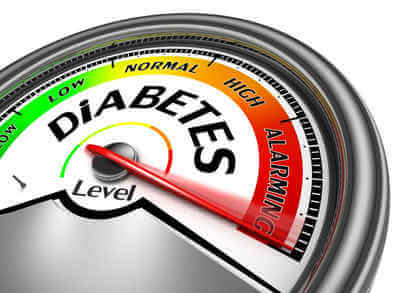HbA1c – Why is it so important?

I am sure that most if not all persons with diabetes are familiar with the term HbA1c. For some people it instills a bit of fear in them especially when there is an upcoming doctor’s visit. To understand why this test is so important we need to understand what it actually is. When we check our blood sugar levels with a glucose monitor it simply tells us how much glucose is in our blood stream at that particular time. A snapshot if you will. The HbA1c shows an average of blood sugar levels over a period of approximately 3 months. This allows us to gauge how effective our treatment and diet plan has been.
When our bodies process sugar from the food we eat, it bonds or sticks to a protein in the red blood cells called Haemoglobin (Hb). The combination of this protein and glucose is called glycated haemoglobin. This basically acts as a glucose record keeper. By measuring this glycated haemoglobin you get the avera
ge of blood sugar levels over the past 3 months. Higher blood glucose levels will result in more glucose attaching to the haemoglobin which can result in a higher HbA1c result.
The amount of glucose that combines with this protein is directly proportional to the total amount of sugar that is in your system at that time. Red blood cells in the human body survive for 8 to 12 weeks before renewal. Therefore, measuring glycated haemoglobin or HbA1c can be used to reflect average blood glucose levels over that duration. This provides a useful gauge of blood glucose control over a longer period of time.
The Importance of Your HbA1c Score

Diabetes is all about glucose management. We spend day in and day out managing our blood glucose levels. Whether it be correcting a high reading or stuffing our faces with cookies to recover from a low. Everything we do revolves around achieving and maintaining that perfect blood sugar level.
This number is very important because the higher it is the higher your chances for having long-term health problems. The body is not designed to handle high
amounts of glucose in the blood stream. More glucose equals more inflammation and more damage to blood vessels. When this happens constantly, the organs can be damaged and this is where the trouble starts. Instead of listing possible complications as a result of constantly high blood glucose levels I will put it this way. Blood travels through your entire body. Therefore, your entire body is at risk.
If you test your blood sugar levels often and get good readings but the HbA1c result is higher than you expected, it can indicate that you are having hyperglycemia episodes that you are unaware of. You may be experiencing the dawn phenomenon often, you may be miscalculating the carbs in a meal you frequently eat, your normal insulin to carb ratios changes throughout the day or one of the million things that can affect your blood sugar levels. In this case you should try changing up your testing regiment to catch the culprit. Try a couple 2 hours post meal testing and middle of the night tests.
All in all the HbA1c is used as a benchmark for our diabetes management. It is recommended to have this test done every 6 months but I personally have it done every 3. The HbA1c and frequent blood glucose testing are 2 of the best tools for managing diabetes.
You can use this tool to see what your average blood sugar level is using your HbA1c result.





 My name is Christopher and I am a type 1 diabetic. I was diagnosed at age 6 in 1993 and with good management I have been healthy and complication free to date. Like most persons living with type 1 diabetes, I have had my ups and downs, daily struggles and issues. However, I intend to live my life to the fullest and I will not let diabetes get in my way.
My name is Christopher and I am a type 1 diabetic. I was diagnosed at age 6 in 1993 and with good management I have been healthy and complication free to date. Like most persons living with type 1 diabetes, I have had my ups and downs, daily struggles and issues. However, I intend to live my life to the fullest and I will not let diabetes get in my way.



Leave a Reply
1 Comment on "HbA1c – Why is it so important?"
[…] over high. However, I now look at a blood sugar reading of 8 mmol/L as high. I was able to get my HBA1C down to 7% when I resubmitted my test results to the insurance […]